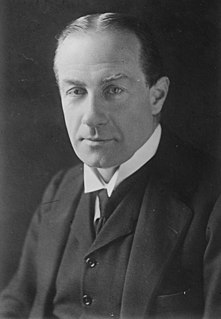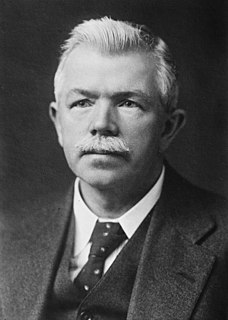
The Australian Labor Party (ALP), also simply known as Labor, is the major centre-left political party in Australia, one of two major parties in Australian politics, along with the centre-right Liberal Party of Australia. After serving as Opposition in the federal parliament since the 2013 election, the Labor Party was returned to government in the 2022 election. The ALP is a federal party, with political branches in each state and territory. They are currently in government in Victoria, Queensland, Western Australia, South Australia, the Australian Capital Territory, and the Northern Territory. The Labor Party is the oldest political party in Australia being established on the 8th of May 1901 in the House of Parliament in East Melbourne.
The New Zealand Labour Party, or simply Labour, is a centre-left political party in New Zealand. The party's platform programme describes its founding principle as democratic socialism, while observers describe Labour as social-democratic and pragmatic in practice. The party participates in the international Progressive Alliance. It is one of two major political parties in New Zealand, alongside its traditional rival, the National Party.

George Lansbury was a British politician and social reformer who led the Labour Party from 1932 to 1935. Apart from a brief period of ministerial office during the Labour government of 1929–31, he spent his political life campaigning against established authority and vested interests, his main causes being the promotion of social justice, women's rights and world disarmament.
The New Zealand National Party, shortened to National or the Nats, is a centre-right political party in New Zealand. It is one of two major parties that largely dominate contemporary New Zealand politics, alongside its traditional rival, the Labour Party.
In UK politics, the Parliamentary Labour Party (PLP) is the parliamentary party of the Labour Party in Parliament, i.e. Labour MPs as a collective body. Commentators on the British Constitution sometimes draw a distinction between the Labour Party and the Conservative and Liberal parties. The term Parliamentary Labour Party refers to the party in Parliament, whereas the term Labour Party refers to the entire Labour Party, the parliamentary element of which is the PLP.

Andrew David Smith is a British Labour Party politician who was the Member of Parliament (MP) for Oxford East from 1987 until 2017. He served in the Cabinet as Chief Secretary to the Treasury from 1999 to 2002 and then as Secretary of State for Work and Pensions from 2002 to 2004.

Dame Angela Eagle DBE is a British Labour Party politician serving as the Member of Parliament (MP) for Wallasey since 1992. Eagle was born in Yorkshire and studied PPE at the University of Oxford, before working for the CBI and then a trade union.

The 1935 United Kingdom general election was held on Thursday 14 November 1935 and resulted in a large, albeit reduced, majority for the National Government now led by Stanley Baldwin of the Conservative Party. The greatest number of members, as before, were Conservatives, while the National Liberal vote held steady. The much smaller National Labour vote also held steady but the resurgence in the main Labour vote caused over a third of their MPs, including National Labour leader Ramsay MacDonald, to lose their seats.

John Robert Clynes was a British trade unionist and Labour politician. He was a Member of Parliament (MP) for 35 years, and as Leader of the Labour Party (1921–1922), led the party in its breakthrough at the 1922 general election.

The Leader of Her Majesty's Most Loyal Opposition, more commonly referred to as the Leader of the Opposition, is the person who leads the Official Opposition in the United Kingdom.

Scottish Labour is a democratic socialist and social democratic political party in Scotland. It is an autonomous section of the UK Labour Party. From their peak of holding 56 of the 129 seats at the first Scottish parliament election in 1999, the Party has lost seats at each Holyrood election, returning 22 MSPs at the 2021 election. The party currently holds one of 59 Scottish seats in the UK House of Commons, with Ian Murray having represented Edinburgh South continuously since 2010.

The 1922 Labour Party leadership election was the first leadership election for the posts of chairman and leader of the Parliamentary Labour Party. Previously the position had been simply the "Chairman of the Parliamentary Labour Party".

The 1983 Labour Party leadership election was an election in the United Kingdom for the leadership of the Labour Party. It occurred when then leader Michael Foot resigned after winning only 209 seats at the 1983 general election, a loss of 60 seats compared to their performance at the previous election four years earlier. This was the worst showing for Labour since 1935 until 2019.

The 1935 Labour Party leadership election took place on 26 November 1935 when Herbert Morrison and Arthur Greenwood challenged Clement Attlee, the incumbent party leader of only one month and one day. Attlee, previously Deputy Leader, had been appointed as an interim leader the previous month when George Lansbury resigned and the general election was looming.

Bow and Bromley was a constituency in the Parliament of the United Kingdom. Located in the Metropolitan Borough of Poplar in London, it was created by the Redistribution of Seats Act for the 1885 general election and returned one Member of Parliament (MP) until it was abolished for the 1950 general election.

The Bow and Bromley by-election was a by-election held on 26 November 1912 for the British House of Commons constituency of Bow and Bromley. It was triggered when the Labour Party Member of Parliament (MP), George Lansbury, accepted the post of Steward of the Chiltern Hundreds as a technical measure enabling him to leave Parliament.

The Leader of the Labour Party is the head of the Labour Party of the United Kingdom. The current leader is Sir Keir Starmer, who was elected in April 2020 to succeed Jeremy Corbyn, having previously spent 9 months as Shadow Minister of Immigration and 3 years, 5 months as Shadow Secretary of State for Exiting the European Union in Corbyn's shadow cabinet.
The Labour Party is a political party in the United Kingdom that has been described as an alliance of social democrats, democratic socialists and trade unionists. The Labour Party sits on the centre-left of the political spectrum. In all general elections since 1922, Labour has been either the governing party or the Official Opposition. There have been six Labour prime ministers and thirteen Labour ministries.

Jonathan Cruddas is a British Labour Party politician who has served as Member of Parliament (MP) for Dagenham and Rainham, and formerly for Dagenham, since 2001.

The 2016 Labour Party leadership election was called when a challenge to Jeremy Corbyn as Leader of the Labour Party arose following criticism of his approach to the Remain campaign in the referendum on membership of the European Union and questions about his leadership of the party.
















